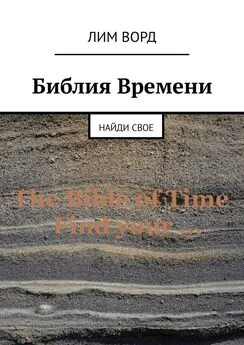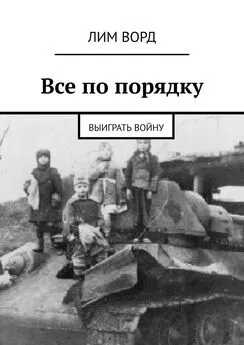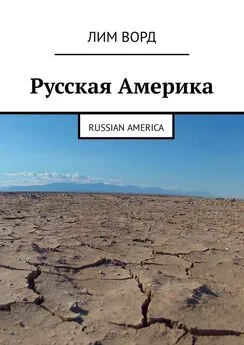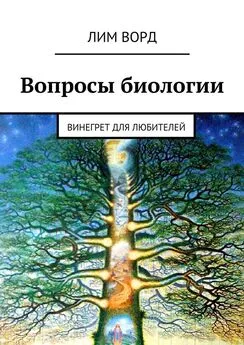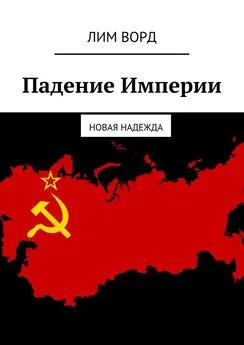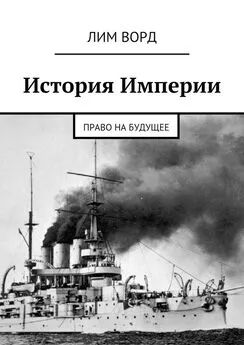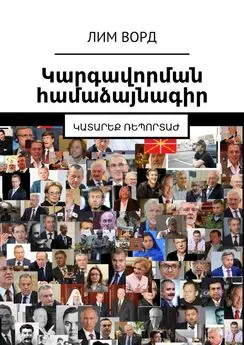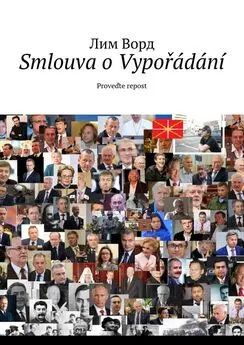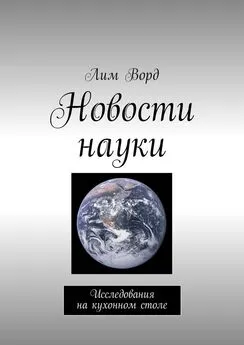Лим Ворд - Библия Времени. Найди свое
- Название:Библия Времени. Найди свое
- Автор:
- Жанр:
- Издательство:неизвестно
- Год:неизвестен
- ISBN:9785449318695
- Рейтинг:
- Избранное:Добавить в избранное
-
Отзывы:
-
Ваша оценка:
Лим Ворд - Библия Времени. Найди свое краткое содержание
Библия Времени. Найди свое - читать онлайн бесплатно ознакомительный отрывок
Интервал:
Закладка:
In total, the losses of the parties with people: Russians – 6 000 people, Swedes – 18 000. The Perpetual Peace Treaty of Verherry is signed – the status quo is preserved throughout the territories.
Meanwhile in Poland, again, the riot is ripening. The society is divided into supporters of the Targovitsky confederation, the friendship of which is bought by Catherine the First, and the «patriotic» party, which controls the Sejm. The first, roughly speaking, for the former feudal orders and alliance with Russia, the latter for some vague «Constitution of May 3», somewhat softening tough serfdom in Poland, and promoting the ideas of the Constitutional monarchy. The latter looks progressive, at the time, however, a sharp increase in the number of Polish troops, revanchism, the possibility, in the future, of aggression against Russia is attached to it, as it happened many times before.
New confederates, together with the allied Russian troops (the strength of the expeditionary corps of 96 thousand people), in a series of fighting clashes defect the supporters of the Constitution. Russia receives the remaining Belarusian lands, as well as Podillia and Volhynia, formerly part of Austria (now engaged in a war with revolutionary France). Prussia occupies Great Poland (the historical center of the Commonwealth) and a number of other territories.
Catherine II is distrustful of Jews, however, 67% of the world’s scattered people live in the annexed lands. For them it is necessary to invent such a thing as the Pale of Settlement – the border of populated areas, the so-called. places where Jews can live, except for some of their preferential categories, is prohibited.
The Grodno Sejm is called upon to approve the new redistribution of Poland. On the requirements of the Sejm Marshal to approve the treaty with Russia, the deputies are silent. Perhaps, it was then that the famous phrase was first pronounced: «Silence is a sign of consent.»
March 16, 1794 in Krakow, the ancient capital of Poland, inspired by the population is elected dictator of the Republic Tadeusz Kosciuszko. The peasants totally destroy the representatives of the intelligentsia, the gentry (local nobility), just well-off people, repeating, in their own way, the events in revolutionary France. Everywhere there are attacks on the garrisons of Prussia and Russia; in Warsaw alone, 2500 Russian soldiers are killed. The military is cut out, unarmed, in houses that they consider friendly, at the signal – the bells ringing for matins on the Feast of Christ’s Resurrection (April 6). Parts of them manage to escape, bayonet attacks through crowds of the rampaging people, under a hail of bullets, logs, stones, anything that can harm, from windows and from roofs.
Lithuanians and Poles gather a body of volunteers, 23 thousand people, who are fighting to the capital with fights. In one of the battles Tadeusz Kosciuszko is captured by the Cossacks. Residents of the capital, encouraged by the recent slaughterhouse, nevertheless, demand the continuation of resistance, possibly hoping for help from revolutionary France. Counting 24 thousand people, Suvorov’s troops almost from the storm storm fortified suburbs (so-called Prague), defended by 25 thousand confederates. Sappers throw fascists a moat with stakes, arrows and cannons support them with fire. According to the testimony of the Russian participant in the assault; «… In my life, I was twice in hell – on the assault of Izmail and on the assault of Prague …". The rout of the Polish formation completes the explosion of the ammunition depot. Losses of the parties: Russian troops 600 people, insurgents 12 thousand.
However, this is not the end. Despite the fact that Suvorov specifically left in the reserve the regiments who suffered during the Warsaw morning, in order not to allow them to take revenge, their comrades also became bitter, and they wanted to punish the guilty. According to some reports, in order to stop their impulse, the commander-in-chief must even blow up the bridge that leads to Warsaw. Soldiers shoot at the crowd, indiscriminately, seeing in every human being only a traitor and murderer. According to later historical research, irregular cossacks are more guilty of excesses, although jury soldiers, remembering that the Poles sometimes spared officers, but the rank and file killed, also quenched their thirst for revenge. In total, while suppressing a riot in Warsaw itself, about 20,000 civilians are killed and, or combatants, a clear distinction can not be made between them.
The commanders-in-chief, as always, are indulgent towards the defeated enemy: Suvorov dismisses 6,000 of the militia, 4,000 regular troops are sent to Kiev, and soon, at the personal request of the Polish king, all officers are released.
Upon learning of the amnesty, the Polish detachments disperse to their homes. The third section of Poland is based on the analysis of flights. Prussia acquires territories inhabited by ethnic Poles, including «cherries on cake» – Warsaw; now they are called South, West and New East Prussia. Austria inherits historical Krakow and surrounding land. Russia receives the present Nemyrivsky (Ukrainian) region, Belarusian Grodno, part of Lithuania, and other, other, other. King Stanislaw Poniatowski – the one who could not keep his lancers and dragoons from the wrong step, gets a solid content, but is deprived of the crown. The Kingdom of Poland, Rzeczpospolita, the Grand Duchy of Lithuania, just Poland, cease to exist.
Tadeusz Kosciuszko, now a hero of Poland, is kept for some time in the fortress of Shlisselburg, under Paul the First, after taking the oath, like all the participants in the uprising, he is released, and leaves for the USA. Two years «Ted» gets acquainted with the situation, ties up with the president, Thomas Jefferson. Then he sails away to Europe, leaving his savings for ransom and the release of a dozen African Americans, including personal servants of the president. Jefferson is an opponent of slavery, but slaves on his plantations in Virginia is holding. In Paris Kosciuszko, says that he is free from the promise of Russia’s loyalty under the pressure and starts to form Polish legions for the French. However, he does not manage to find mutual understanding with Napoleon, whom he calls «the undertaker of the French Republic». Kosciuszko departs from violent revolutionary affairs and is devoted to literary writing. Towards the end of his life, Tadeusz is finally thinking of starting with himself-he writes a testament according to which 53 peasant families of his personal estate are exempt from serfdom. But, the latter already belongs to relatives, and the court rejects the last will of the revolutionary.
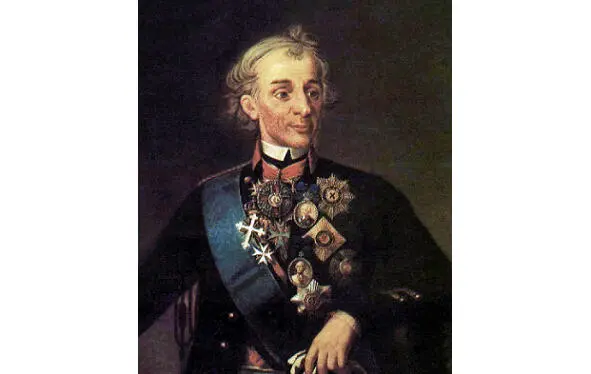
1
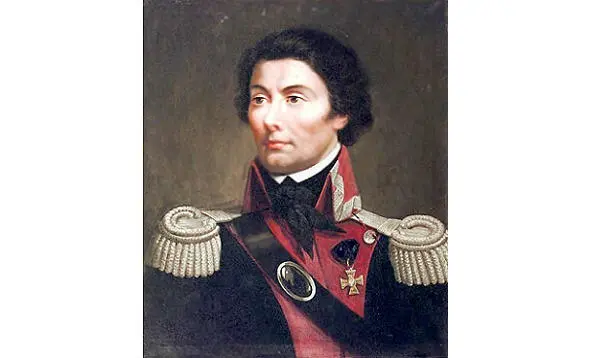
2
1. Alexander Vasilyevich Suvorov 1730—1800, Count, Prince, Generalissimo of Russia, General-Field Marshal of Austrian and Piedmontese troops. According to the pedigree legend, the Suvorovs originate from the ancient Scottish family name (Suvor), which originated in Russia under Mikhail Fedorovich (the first Russian tsar of the Romanov dynasty). In 1742, under Elizabeth Petrovna enlisted in the Musketeer regiment, 12 years later receives the first rank of lieutenant. The title of brigadier (intermediate between the colonel and the general) Suvorov was awarded in 1768, after the wars with Prussia and the capture of Berlin. There are a number of campaigns to «pacify» Turkey, Poland and the final consolidation of the Crimea within Russia. Suvorov fails to seize Emelian Pugachev (he is ahead of a certain centurion Harchev), but he is involved in suppressing the remnants of the peasant army.
He is married twice, in his first marriage two, the second – four children. Contemporaries note the strange custom at dawn to walk almost naked, while riding in dewy grass (supposedly this is very useful for health). Interesting remark of the King of France Louis XVIII, who knows Suvorov personally: «Cruel impulses, fearless by nature, he could calmly and calmly see the streams of blood, the conflagration of the destroyed cities, the desolation of the destroyed fields. It was a copy of Atilla, with his superstition, faith in witchcraft, in forebears, in the mysterious influence of the stars. … In a word, Suvorov had in himself all the weaknesses of the people and the high qualities of the heroes.»
Another eccentricity of the prince, thoroughly imprinted in the people’s memory, is the «Suvorov» method of marrying serfs (which the prince numbered about 15,000). If there were not enough girls for the boy in the Kobrin estate, Suvorov bought them in neighboring estates (the prince’s salary is 50,000 rubles a year). Twenty or thirty pairs of both sexes were built according to their height. Actually, this parameter (growth) was the main one in the selection of men and women for marriage; the priest immediately conducted a rite on them. Perhaps, this method will seem to the contemporary not quite human, but, it must be admitted that at that time the overwhelming majority of marriages were made exclusively by calculation. Errors here are unlikely to be more than in the case of matrimony «for love,» and the level of expectations is initially smaller – hence, there is no disappointment either.
To the place, or not, let us recall one of the Russian folk songs (where all the same, there is also some will):
When I had the golden mountains
And rivers full of wine
I would give all my cares for caresses
So that you own me alone
– Do not blame me unfairly
Tell the whole truth you’re the father
Then freely and happily
With prayer we will go to the crown
– Ah, me, your little dove, hand
I asked him more than once
But he did not understand my flour
And he gave me a severe refusal
– Well, honey, I’ll leave
Family and country?
After all, you will go to a foreign land
And throw me there alone
We have flown into a foreign country
And a year later he changed
He forgot the fatal oath
When another fell in love
And he told me, ashamed of betrayal
Go back to your father’s house
Leave, Maria, my walls —
And he escorted me from the porch
2. Tadeusz Kosciuszko, in Polish sounding – Andrzej Tadeusz Bonaventura Kosciusko (or Kosciusko), 1746—1817. Head of the Polish uprising in 1794. Place of birth – Mertsevschina, Grand Duchy of Lithuania, now Brest region, Belarus. He graduated from the Cadet Corps in Warsaw. He held the post of educator in the estate of the tycoon Juzef Sosnovsky. After an unsuccessful escape with the employer’s daughter, he moved to France, where he received engineering skills. Sailed to America, took part in the war with England, received the rank of brigadier general. He returned to Poland, limited the corvee in his estate, but then ceased to bring the necessary income, and the revolutionary got into serious debts.
…Kosciuszko applies for entry into the army, becomes a major general and a wealthy person. In 1794, the general leads the movement for Great Poland, receives blows with a pike and a sword, is captured by the Cossacks. On instructions from the tsar, he is released, writes letters to Napoleon with an appeal to establish a noble democracy in Poland, but he does not receive a reply. He enters into correspondence with the Emperor Alexander the First, but they do not develop cooperation on the issue of creating a tired, completely non-ambitious Poland.
Читать дальшеИнтервал:
Закладка:
